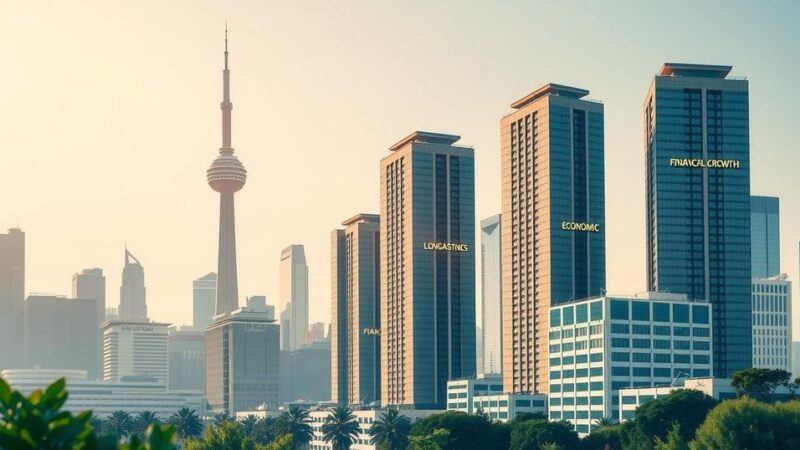Brazil is utilizing advanced forensic technologies to combat illicit gold mining in the Amazon rainforest, which has surged in recent years. The program “Targeting Gold” aims to trace the origins of gold to thwart illegal exports, leading to a notable increase in gold seizures. Approximately 40% of extracted gold may be illegally sourced, primarily from Indigenous lands, prompting additional international scrutiny and collaborative efforts to ensure legally-sourced gold trades.
Brazil is intensifying efforts to combat the rampant illicit gold trade in the Amazon, leveraging advanced forensic technology for the first time. Notably, the case of Harley Sandoval, arrested for illegally exporting gold, demonstrated the effectiveness of utilizing satellite imagery and forensic methods to trace gold origins to illegal mines, thus undermining claims of legality.
The Brazilian Federal Police’s initiative, termed “Targeting Gold,” aims to trace the provenance of gold by utilizing isotopic analysis and spectroscopy to analyze gold samples. This program has contributed to a marked increase in gold seizures, which surged 38% in 2023 under President Luiz Inácio Lula da Silva’s administration. Approximately 40% of gold extracted in the Amazon is estimated to be illegal, primarily stemming from protected Indigenous lands.
Historically, gold has posed challenges in tracing its origin post-refining processes; however, the new technologies offer an innovative approach to defeating criminal operations. Artisanal mining, now industrialized, invites numerous environmental hazards including mercury contamination, while simultaneously feeding violent criminal enterprises. The government’s response involves deploying forces for environmental protection and collaborations with neighboring countries to adopt similar traceability measures in combating illegal gold activities.
In addition, Brazilian officials are conducting extensive analytical work to catalog gold samples that would aid in establishing a comprehensive understanding of the various producing regions. Moving forward, there is a significant urgency to ensure that gold imported by nations such as Switzerland and the UK is sourced legally, highlighting a rising international interest in legally-traced gold products. This shift is pivotal toward sustainable and responsible practices within the global gold trade.
The Amazon rainforest, rich in mineral resources, has long been a center of illegal gold mining activities, which escalated significantly during the previous administration under Jair Bolsonaro. These operations have been attributed to environmental degradation and have had catastrophic impacts on Indigenous communities. The rise in global gold prices has further incentivized illicit extraction activities, prompting Brazilian authorities to adopt new technologies and strategies aimed at curbing this trade. Recent developments showcase Brazil’s innovative approach to address the widespread issue of illegal gold mining through forensic science and partnerships with academic institutions.
In conclusion, Brazil’s innovative use of forensic technologies in combating the illegal gold trade marks a significant advancement in environmental protection and law enforcement. As illegal mining continues to pose threats to both the ecological integrity of the Amazon and the rights of Indigenous communities, initiatives like the “Targeting Gold” program will be crucial. Furthermore, international collaboration and stringent regulations on gold imports are becoming increasingly necessary to fortify efforts against illicit mining and promote responsibility within the global gold supply chain.
Original Source: www.hindustantimes.com





